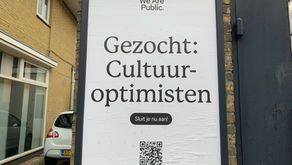Kronberg Academy
- Judith Weir
- Apr 1, 2017
- 2 min read

I entered the Wigmore Hall to attend the annual Jacqueline du Pré Memorial Concert, presented by the Royal Society of Musicians. The foyer was full of people carrying violin cases – surely a good sign – whereupon a source told me that a couple of days’ of rare instrument sales had just concluded in London, which is the world capital of this international high-finance business. Presumably not every visible case contained a multi-million pound instrument, but you can understand why string players are always carrying them around. The guardianship of such instruments must be a worrying burden, however inspiring they are to play.
The pre-concert mutter in the hall sounded very professional too: “blah blah…gut strings …Beare’s…Gofriller…” etc. Onto the stage processed some youthful ‘soloists of Kronberg Academy’ who proceeded to give one of the most staggering and intense evenings of string music I can remember. Who or what is Kronberg Academy? I had no idea, but it was obviously well known to my fellow listeners. Later I picked up that it provides a super-high level training (in Germany, near Frankfurt) to young string and piano soloists who have already reached the very top; during this evening one of the elite teachers, Steven Isserlis, was joyously guesting as first cellist in the wonderful Souvenirs de Florence by Tchaikovsky.
Having spent a bit of time recently at the Yehudi Menuhin School, I had anyway been reflecting that, at such rarefied heights of skill and musicianship, learning a string instrument could be compared to preparing for the priesthood. Except that, as well as self-sacrifice and dedication, this profession of faith also requires perpetual bow control, uncomplaining rehearsal at inconvenient hours, eternal graciousness to managements and endurance of horrible early morning flights. But in front of the public (as on this evening) the pleasures of music are so obvious that no-one remembers this.
Pictured – at the Yehudi Menuhin School






